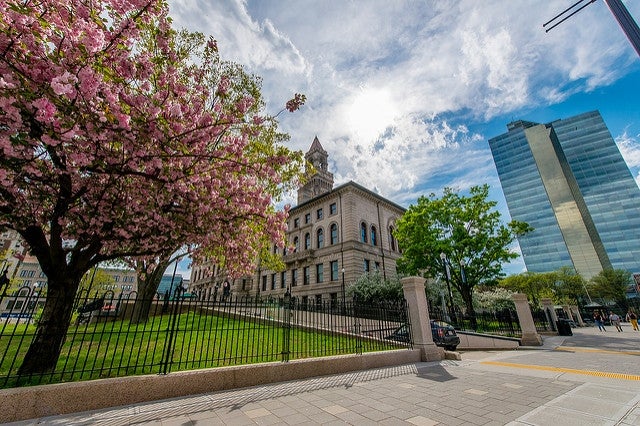In a 7-4 vote on Tuesday night, the Worcester City Council approved a 2017 tax plan that will further increase the gap between the rates of business property owners vs. residential property owners, cementing a trend the government began last year.
The new tax rate will be $32.93 per $1,000 assessed valuation for commercial-industrial properties vs. $19.22 per $1,000 for residential properties. The average business property bill will increase $360 while the residential bills will increase $52.
For the four years leading up to last year – at the urging of the Worcester Regional Chamber of Commerce and businesses in the city – the council narrowed the gap between the businesses and residential rates, with the goal of eventually getting back to a single tax rate for the first time since the split rate was introduced in 1984.
Last year, the council reversed that trend by growing the gap and placing a larger burden on businesses. Of the 16 Central Massachusetts communities with a split tax rate, Worcester was one of only six to increase the gap for 2016.
“You suddenly can’t start charging $20 for a $7 pizza,” said Stuart Loosemore, director of government affairs for the Worcester chamber. “Picking up that progress that was done for about five years – although not last year – of moving toward a single tax rate would have been a much better move for the council.”
The 2016 residential tax rate is $20.61 per $1,000, while commercial and industrial is $33.98 per $1,000. Although the 2017 rates are lower than the 2016 rates, both businesses and residents will have higher tax bills because the value of property in the city has increased.
The four councilors who voted against the increased gap were Mayor Joseph Petty, Tony Economou, Sarai Rivera and Kathleen Toomey, who all favored a tax rate that would have narrowed the gap, although not as much as the chamber proposed.
“That is at least letting the business community know there are some people in the city aware of the large tax issues for companies,” Loosemore said.

